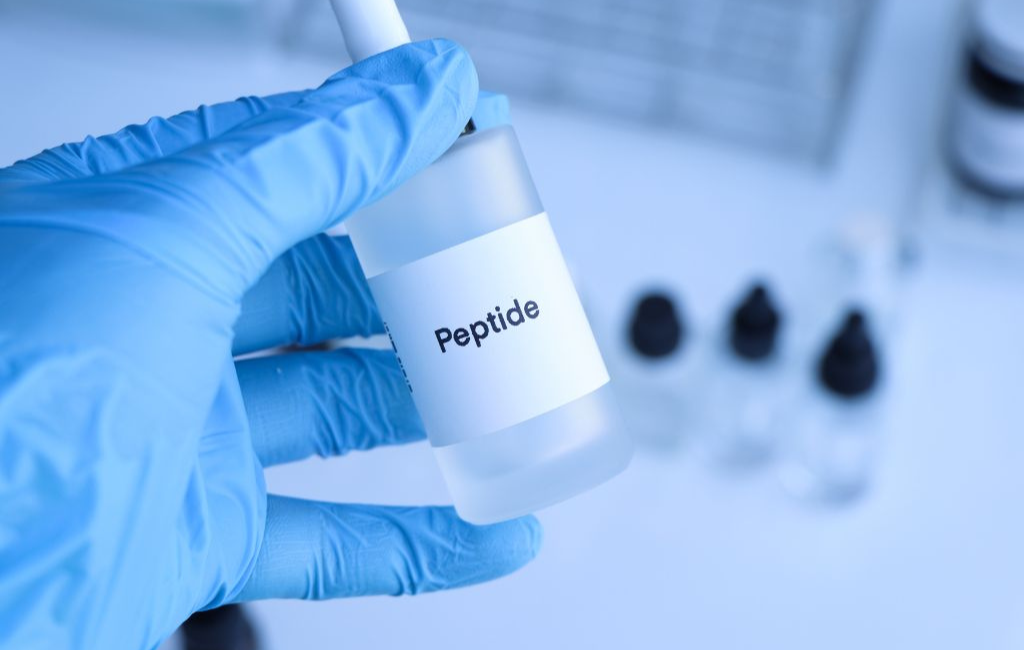Peptides Benefits for Joint Health
Joint health is a significant concern for many individuals, especially as they age or engage in high-impact activities. Peptides, short chains of amino acids, have emerged as a promising solution for maintaining and improving joint health. This article explores the benefits of peptides for joint health, supported by research, examples, and case studies.
Understanding Peptides
Peptides are naturally occurring biological molecules that play a crucial role in various bodily functions. They are smaller than proteins and can easily penetrate the skin and intestines, making them effective in therapeutic applications. Peptides are involved in processes such as hormone regulation, immune function, and tissue repair.
Types of Peptides for Joint Health
- Collagen Peptides: These are derived from collagen, a protein that provides structure to skin, bones, and connective tissues. Collagen peptides are known for their ability to support joint health by promoting cartilage regeneration and reducing inflammation.
- BPC-157: A synthetic peptide that has shown potential in healing tendons, ligaments, and joints. It is believed to enhance blood flow to damaged tissues, accelerating the healing process.
- Thymosin Beta-4: This peptide is involved in tissue repair and regeneration. It has been studied for its ability to reduce inflammation and promote healing in joint tissues.
Benefits of Peptides for Joint Health
Peptides offer several benefits for joint health, making them an attractive option for those seeking relief from joint pain and stiffness.
Reduction of Inflammation
Inflammation is a common cause of joint pain and stiffness. Peptides like BPC-157 and Thymosin Beta-4 have anti-inflammatory properties that can help reduce swelling and discomfort in the joints. By targeting the inflammatory pathways, these peptides can provide relief and improve joint function.
Promotion of Cartilage Regeneration
Cartilage is the flexible tissue that cushions joints and allows for smooth movement. Over time, cartilage can wear down, leading to joint pain and arthritis. Collagen peptides have been shown to stimulate the production of new cartilage, helping to repair damaged joints and improve mobility.
Enhanced Recovery from Injuries
For athletes and active individuals, joint injuries can be a significant setback. Peptides like BPC-157 can accelerate the healing process by promoting blood flow and reducing inflammation in the affected area. This can lead to faster recovery times and a quicker return to physical activities.
Case Studies and Research
Several studies have highlighted the potential of peptides in improving joint health. A study published in the journal Osteoarthritis and Cartilage found that participants who took collagen peptides experienced a significant reduction in joint pain and improved joint function compared to those who took a placebo.
Another study conducted on athletes with joint injuries showed that BPC-157 accelerated the healing process and reduced recovery time. Participants reported less pain and improved joint mobility after using the peptide.
Incorporating Peptides into Your Routine
For those interested in using peptides for joint health, there are several ways to incorporate them into a daily routine. Peptides can be taken as oral supplements, injected, or applied topically, depending on the type and intended use.
Oral Supplements
Collagen peptides are commonly available as oral supplements in powder or capsule form. These supplements can be easily added to smoothies, drinks, or meals, making them a convenient option for daily use.
Injections
Some peptides, like BPC-157, are more effective when administered through injections. This method allows for direct delivery to the affected area, providing targeted relief and faster results.
Topical Applications
Topical peptide creams and gels can be applied directly to the skin over the affected joint. This method is non-invasive and can provide localized relief from pain and inflammation.
Conclusion
Peptides offer a promising approach to improving joint health through their ability to reduce inflammation, promote cartilage regeneration, and enhance recovery from injuries. With various types of peptides available, individuals can choose the most suitable option for their needs. As research continues to uncover the potential of peptides, they may become an integral part of joint health management for many people.

